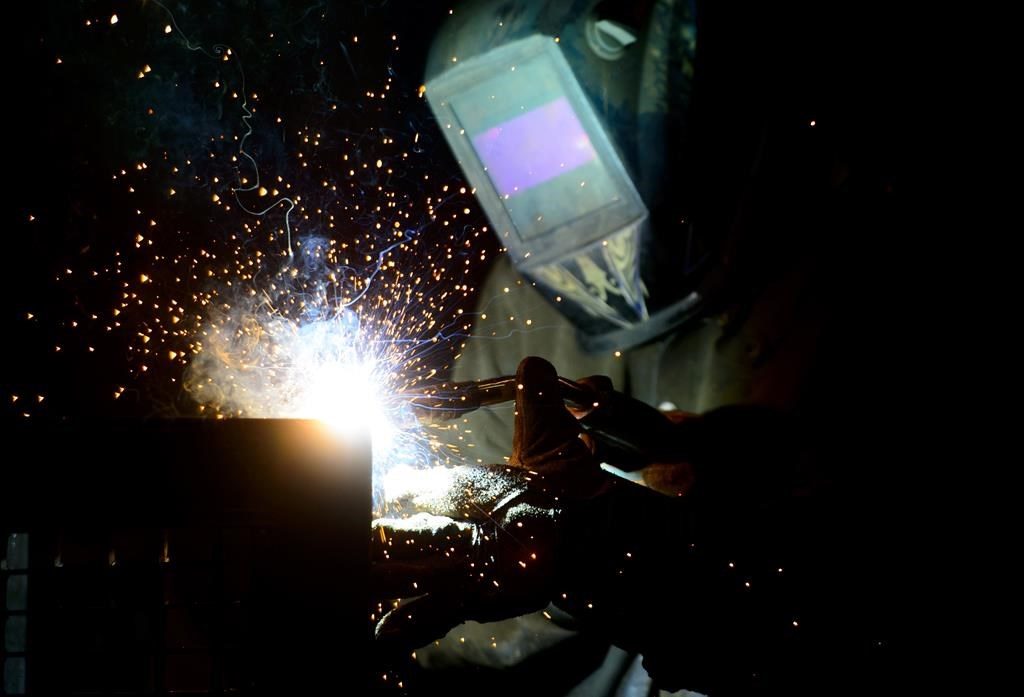Countdown begins to Catalonia independence bid
Posted Sep 25, 2017 09:56:13 AM.
Last Updated Sep 25, 2017 10:40:46 AM.
This article is more than 5 years old.
MADRID – Barring an unexpected development, Spanish and Catalan authorities are headed for a head-on clash Sunday, when the regional government vows to stage a binding referendum on separating from Spain. The Spanish government insists the referendum is illegal and promises it won’t take place.
Here’s a look at how Spain got to this point:
___
WHAT IS CATALONIA?
Catalonia is one of Spain’s 17 autonomous regions. Its capital is the dynamic Mediterranean port city of Barcelona, a perennial favourite for tourists.
With a population of 7.5 million inhabitants, it is one of Spain’s main economic powerhouses, contributing a fifth of the country’s 1.1 trillion-euro economy ($1.32 trillion). The region has its own cultural traditions and its own language, which was suppressed during the 1939-1975 dictatorship of Gen. Francisco Franco. It is also home to one of the world’s best-known soccer teams, FC Barcelona.
The regional government runs its own police and exercises considerable powers in health and education, but key areas such as taxes, foreign affairs, defence, ports, airports and trains are in the hands of the Spanish government based in Madrid.
___
WHY DOES IT WANT INDEPENDENCE NOW?
While many Catalans have long stressed the region’s differences from the rest of Spain, the latest surge for independence essentially began in 2010, when Spain’s constitutional Court struck down key parts of a groundbreaking charter that would have granted Catalonia greater autonomy and recognized it as a nation within Spain.
The court’s rejection stung the region and has since driven hundreds of thousands of residents out onto the streets every Sept. 11, a Catalan holiday, to demand independence.
Spain’s 2008-2013 financial crisis and the harsh austerity measures that followed generated more support for secession, with many Catalans feeling they could do better on their own.
___
DO ALL CATALANS WANT INDEPENDENCE?
While the vast majority of Catalans favour holding a referendum, they have long been almost evenly split over independence. In recent months, especially with the national and regional economies thriving again, polls indicate support for secession is on the wane, although it would still be a close call.
The region’s first attempts to hold a non-binding referendum in 2014 were blocked by the constitutional Court. The Catalan government went ahead and staged an unofficial poll. About 2.3 million Catalans — less than half of those eligible — voted, with 80 per centfavouring independence.
Regional elections in 2015 returned a slim majority of pro-independence lawmakers, who took this as a mandate to push ahead with the independence drive. They pledge they will proclaim a new republic within 48 hours of the ballot if a “yes” vote wins the new referendum, regardless of turnout.
The constitutional Court has ordered the referendum suspended while it studies its legality but Catalan authorities says the region’s desire to vote overrides this.
___
ARE THE TWO SIDES TALKING?
Talks between the two sides have been virtually nonexistent. Spanish conservative Prime Minister Mariano Rajoy has said he can’t discuss a referendum unless the constitution is changed, and invited Catalonia to work on changing it. The Catalan government says its right to self-determination must be respected first before talks can proceed. Both sides accuse each other of acting illegally and undemocratically.
Catalonia wants a referendum like those permitted in Scotland and Quebec, but Spain’s 1978 constitution stipulates that only the national government can call referendums on sovereignty and that all Spaniards must be allowed to vote.
So far, it’s been a game of chicken with the Catalan government making preparations and the Spanish government legally challenging every move and blocking almost all. Several officials, including former regional chief Artur Mas, have been convicted and others face possible trial for disobeying court rulings on the past and planned referendums.
Last week, Spanish police arrested officials for the first time for their role in organizing the vote and seized millions of ballot papers. They also ordered police reinforcements to the region to ensure the vote does not take place.
___
COULD CATALONIA SURVIVE ALONE?
Both Spain and Catalonia would likely suffer considerably if they parted ways without agreement. But Catalonia’s fate would also depend on outside reaction.
So far, no country or international body has expressed any appetite for Catalan independence. The European Union, fearful that it could stir other regional nationalists to follow suit, says Catalonia would have to reapply for EU membership, something that Spain could block.
The economic impact is virtually impossible to estimate. Catalonia has a gross domestic product of about 215 billion euros ($257 billion) — the largest of the Spanish regions, greater than Greece’s and close to those of Ireland and Denmark — but many of its goods are supplied by the Spanish state. Spain in return relies on Catalonia’s industrial products and export facilities.
___
WHAT NEXT?
Catalan President Carles Puigdemont calls on Catalans to come out massively to vote but has said that a unilateral declaration of independence could be considered depending on what happens Oct. 1.
The looming question is how the Catalan government will justify the legitimacy of the vote. There are so far no details on a census or on electorate numbers, and although voting station locations have been released, police could act to close them or confiscate any ballot boxes.
The regional government says there will be international observers, but an electoral junta that is supposed to be overseeing the fairness of the vote was disbanded last week when Spain’s constitutional Court imposed hefty fines.
Everyone expects a sizeable turnout, but it’s anyone’s guess whether a serious voting process can take place. Much will also depend on how it is perceived by the international community and press. Clashes with police, though almost non-existent so far, could prove to be explosive.










